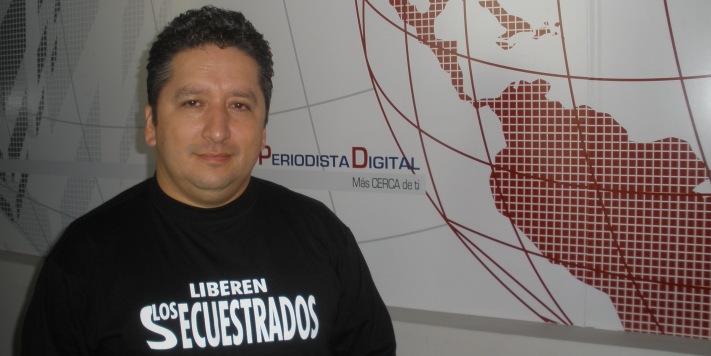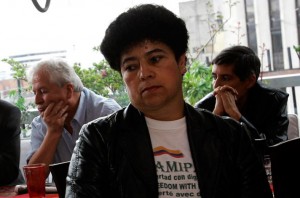
EspañolFor the last 50 years, Colombia has been involved in an internal armed conflict, the end of which has seemed constantly elusive. The current peace process, which is underway since 2012, has created a unique opportunity for Colombia to achieve a long-awaited peace, or at least to deescalate the conflict.
The government, the Revolutionary Armed Forces of Colombia (FARC), and a significant portion of the population are aware of this.
But a large sector of Colombian society believes that the government has been excessively lenient with the FARC rebels, granting them far too many concessions in exchange for gestures which should have constituted the basic starting point of any serious negotiation. Consider, for instance, the recent agreement on the search for people who have disappeared during the war. It comes quite late, but society has still welcomed it and, surely, it’s an important point for the peace talks to advance.
The government, however, has ignored other demands which large portions of civil society consider a sine qua non prior to any peace agreement. The best example of this is the government’s failure to require at the very outset of the negotiations the release of all kidnap victims who still remain under the FARC’s custody.
In fact, 3,000 people remain kidnapped in Colombia, according to war correspondent Herbin Hoyos, who has covered the Colombian armed conflict for 20 years and became the champion of kidnap victims with a popular radio show. There is no information available on the kidnapped, and some fear that the FARC might have killed many of them, or might kill them still.
Hoyos says that handing over hostages to the government is not convenient for the FARC, since this would constitute proof of their systematic crimes against humanity for which they would be criminally charged even in international courts.
“The same happened with the paramilitary forces,” Hobos explains. “They held 170 people kidnapped throughout the country — in Arauca, Casanare, Antioquia, Sucre — and they all disappeared when the negotiations began.… They [the FARC negotiators in Havana] want to blame deceased commanders for the crimes, and don’t want to be held responsible.”
Hoyos adds that the FARC have abducted some 4,000 people, including 760 foreigners, and, in many cases, their whereabouts are unknown.
Are Victims a Central Part of the Peace Negotiations?
Although the government created a Truth Commission and allowed three groups of victims to visit Havana under the auspices of the United Nations, the Catholic Church, and the guarantor nations (Cuba and Norway), Hoyos believes that the victims as a whole are not represented at the negotiating table.
“The victims should be the key players in the resolution to any conflict,” he says. “They should be the ones giving the green light to any agreement. But, in this case, a small group of victims has been handpicked, so that the process is biased. Many of them have been bought off with bureaucratic posts, and the government has even offered their relatives high-ranking positions in the administration.”
He says this small group claims to represent victims as a whole, giving the impression that they all back the agreement.
Hoyos concludes that the first step for both the government and the FARC is to earn the victims’ trust. Both parties, he says, “are responsible for creating an atmosphere of mistrust among those who have witnessed the horror of the conflict during so many years, and they are being put at a disadvantage for political reasons,” Hoyos says.

Marleny Orjuela heads the Asfamipaz Foundation, which represents kidnap victims among the armed forces. FARC members murdered her cousin, Alexander Zambrano, a police officer who spent 11 years as a hostage. She thinks the agreements have focused on victims’ reparations, but she is still awaiting the results.
“The minimum you expect is for the agreement to be kept,” Orjuela says. “That would generate confidence in the country.”
She is hopeful that the FARC will hand over their victims’ skeletal remains and collaborate in the search for those of missing persons. However, she says that “a mother can never receive a just compensation for the loss of a son, because no one can bring him back.”
She adds that she is willing to tolerate the FARC’s participation in politics, if that is a condition for peace.
This is one of the peace negotiations’ most controversial issues. When the government announced that it was entering peace talks with the FARC, no one knew whether guerrilla leaders such as Timochenko, Catatumbo, or Iván Márquez would serve time in jail or rather end up serving in Congress. It is now clear, however, that the FARC intend to give up their armed struggle only if they are allowed to become a formal political party.
Hoyos believes that FARC members should be allowed to take part in politics after an amnesty or negotiation, “if they have no blood on their hands, and many of them don’t.”
He explains that those who committed political crimes may be exempted for jail, but not those responsible for crimes against humanity. Colombians, he says, “can’t allow justice to be disregarded for the sake of a negotiation.”
Marleny Orjuela, however, thinks differently.
She says that “one might legitimately question whether allowing guerrilla fighters to go into in politics is just, but, as we speak, there are a number of serving congressmen who have been jailed for their close links to paramilitary groups. Sometimes, when I hear of corruption scandals in local governments, I find Colombians’ boasts about honesty and transparency laughable.”
Orjuela is aware that many Colombians are opposed to the three-year-old peace process, but she says that they often ignore the 50 previous years of war. “Those waging the war,” she states, “are the poor and campesinos, since police officers, soldiers, and guerrilla members all come from poor families.”
[adrotate group=”8″]
According to the joint declaration issued by the Colombian government and the FARC regarding the initial agreement on justice, those who committed crimes punished under Colombian law could be amnestied or pardoned. On the other hand, those accused of crimes against humanity, genocide, or war crimes will be subject to the investigation of a special peace commission.
The declaration also mentions the FARC’s transformation into a legal political movement. As of now, it is uncertain whether FARC politicians will be required to collect signatures from citizens supporting their candidacies in order for them to appear on the ballots at local and national elections. This is the standard requirement for new and independent political movements that intend to campaign against the established political parties.
Hoyos believes that the FARC is looking to gain a mere political advantage at a time when the country stands before a great opportunity for peace. However, he says that the signature of the agreements “would be good for the country.”
“Although the deal looks to be a bad one,” Hoyos adds, “society will also benefit from the agreements even if the negotiators’ way of proceeding is unfortunate.”
For her part, Orjuela concludes that no Colombian deserved to suffer a five-decade long conflict, and that no one deserved to die. She says that “we need to live in a country with an inclusive, sustainable peace.”
 Versión Español
Versión Español












